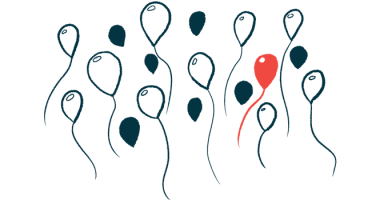Recurrent Attacks in AHP Patients Serious and Lead to Chronic Symptoms, Study Based on Natural History Finds

Most acute hepatic porphyria (AHP) patients with recurrent attacks also experience significant chronic symptoms between attacks, with more than 75% of them needing to be hospitalized or treated with hemin, a study drawn from an ongoing trial into this disease’s natural history reports.
EXPLORE, as this trial to characterize AHP in people with recurrent attacks is called, also found these symptoms considerably affect patients’ quality of life.
The study, “EXPLORE: A Prospective, Multinational, Natural History Study of Patients with Acute Hepatic Porphyria with Recurrent Attacks,” was published in the journal Hepatology.
AHP is a genetic disease caused by mutations on genes that regulate production of heme, the main component of hemoglobin found in red blood cells.
Although it is estimated that a majority of patients with autosomal dominant acute intermittent porphyria (AIP), the most common type of AHP, experience only a few attacks during their lifetime, 3 to 8 percent have recurrent attacks. Such repeat attacks can lead to long-term complications, such as kidney failure, high blood pressure, and liver cancer.
“During attacks, patients typically present with multiple signs and symptoms due to dysfunction across the autonomic, central, and peripheral nervous systems,” the researchers wrote. “They often require hospitalization and pain relief with opioids.”
The only approved treatment for acute attack symptoms is intravenous (into the blood) administration of hemin.
Because no therapies are currently approved to prevent these attacks, patients use strategies to avoid triggering them, including preventive treatment with hemin. However, this can lead to serious complications like iron overload, resistance to the therapy, and damage to veins.
While data suggest “a high unmet medical need for effective treatments,” the researchers wrote, “addressing these needs is impaired by a limited understanding of the natural history of AHP.”
The EXPLORE clinical trial (NCT02240784) aims to characterize the natural history (disease course in the absence of treatment) and current clinical management of AHP patients with recurrent attacks.
It has recruited 112 patients across Europe (63 people) and the U.S. (49 people) with recurrent (defined as three or more) attacks in the past 12 months or receiving treatment to prevent the attacks (including heme or gonadotropin-releasing hormone analogs).
At the start of the trial (baseline), researchers recorded the number of attacks, attack symptoms, and chronic symptoms between attacks. They also assessed patients’ quality of life, health status and treatments routines.
At baseline, these people had a median of six attacks over the previous year (range of 0 to 52), with 32% of them experiencing more than 10 attacks.
Researchers observed that pain (mostly abdominal) was reported by almost all patients during the attacks (99%), together with nausea (85%) and changes in urine color (81%).
Chronic symptoms between attacks were reported by 73 patients (65%), with 52 of them experiencing these daily. The most common chronic symptoms were pain, nausea, tiredness, and anxiety.
Prior to the study, 94 patients (84%) received hemin for the attacks, with 55 people (59%) experiencing side effects. Hemin-related acute complications include infusion-site reactions, nausea, fatigue, and headaches.
Among the 62 patients (55%) using preventive therapies, almost half (46%) were taking hemin, administered weekly in 42% of the cases. U.S. patients had a higher rate of preventive therapy with hemin (53%) than patients in Europe (41%).
During the study period, 98 people (88%) experienced 483 attacks, with 77% of them required treatment at a care facility and/or hemin administration. The percentage of attacks requiring such urgent care was similar between Europe and the U.S.
Patients who experienced recurrent attacks reported a low quality of life before and during the study. On average, patients made 3.6 trips to a hospital’s emergency department, and were hospitalized for a mean of 5.1 nights.
“These results underscore the need for novel therapies that can reduce attacks, disease manifestations in between attacks, and improve patients’ ability to function on a daily basis,” the study concluded.






